The internet thrives on instant gratification, but some aspects of online success require patience and a long-term perspective. Search Engine Optimization (SEO) is a prime example. Business owners are often eager to know, “How long does SEO take to show results?” While climbing Google’s search rankings might be a top priority for your website, SEO changes can take months or even years to fully manifest.
However, the investment of time and effort is a surefire path to long-term growth. The sooner you begin, according to a Search Engine Watch survey: the sooner you’ll reap the rewards of a well-optimized website.
At Vich Design Studio, we understand the importance of setting realistic expectations. This guide dives into the factors influencing SEO timelines and what you can realistically expect.
The SEO Journey: A Multifaceted Path to Success
Achieving high search engine rankings in today’s competitive digital landscape requires a multifaceted approach. SEO is a blend of art and science, demanding a strategic and patient approach due to the numerous variables involved.
- Domain Age and Authority: Building Trust Over Time
Search engines like Google consider your website’s domain age as a marker of trustworthiness. Generally, websites with longer domain registration are viewed as more established and reliable Backlinko. A website that’s been around for three years is bound to have more content, authority, and backlinks compared to a recently launched one. Conversely, if your website’s history reflects declining rankings, it may take more time and resources to turn things around.
- Authority: Establishing Expertise in Your Niche
While a precise definition is elusive, search engines consider a variety of factors to determine how authoritative a website is on a specific subject. Strong metadata optimization, a clean backlink profile (links from high-quality websites pointing to yours), and high-quality content are just a few factors that can elevate your website’s authority. Vich Design Studio employs a data-driven approach to craft content that adheres to the E-E-A-T (Experience, Expertise, Authoritativeness, and Trustworthiness) method
- Competitiveness: Choosing the Right Battles
Targeting specific keywords or market areas can be daunting, especially if they are highly competitive. While these desirable keywords can lead to significant traffic, achieving high rankings for them takes time and a robust strategy. If your website is new to SEO, it’s best to start by optimizing for keywords with lower difficulty scores, making them easier to rank for. Focusing on these more achievable targets can lead to faster results and a more successful SEO journey. As your website’s authority grows, you can gradually shift your focus towards more competitive keywords.
- Content Quality: The Cornerstone of SEO Success
In today’s content-saturated world, standing out requires exceptional content. To outrank competitors, you need to create informative and engaging content that surpasses the average. Aim for longer articles with in-depth analysis and coverage of a given topic, strategically incorporating relevant keywords to enhance search visibility. Vich Design Studio believes in the power of quality content. We don’t churn out generic articles – we craft content that educates, entertains, and compels users to take action.
- Scope: Tailoring the Approach to Your Website’s Needs
The size and complexity of your website, the amount of new content you create, and the restructuring of existing content all significantly impact how long it takes to see SEO results. Naturally, larger websites with a vast amount of content require more work to optimize. Similarly, competitive keyword goals necessitate more research and resources to develop a result-driven strategy. Vich Design Studio understands that a one-size-fits-all approach doesn’t work in SEO. We take the time to understand your website’s unique needs and tailor our SEO strategy accordingly.
To navigate the complexities of SEO effectively, consider partnering with a team of experts. Vich Design Studio offers a diverse team with expertise in SEO, IT and development, social media, and public relations.
Let’s explore the three fundamental SEO categories – on-page, off-page, and technical SEO – and the timeframe you can expect for each to yield results.
On-Page SEO: Optimizing Your Website’s Foundation
On-page SEO refers to the optimization of elements directly on your website. This includes:
- Content: Creating high-quality, informative content that targets relevant keywords.
- Title tags and headers: Structuring your content with clear and concise titles and headers.
- Meta descriptions: Crafting compelling descriptions that entice users to click on your webpage in search results.
- Image optimization: Optimizing image file sizes and using descriptive alt tags.
- Internal linking: Linking relevant pages within your website to improve user experience and navigation.
While on-page SEO is an ongoing process, you can typically expect to see results from early efforts within 4-6 months. However, maintaining high rankings requires consistent refinement and adaptation as search engine algorithms evolve and competitors vie for the same position.
Off-Page SEO: Building Authority and Brand Awareness
Off-page SEO encompasses activities performed outside your website to enhance its credibility and online presence. Key strategies include:
- Link building: Acquiring backlinks (links from other websites pointing to yours) from high-authority sources.
- Social media marketing: Utilizing social media platforms to promote your content and engage with your audience.
- Content marketing: Creating valuable content that establishes you as an industry thought leader.
- Local SEO tactics (for local businesses): Optimizing your online presence for local search results.
- Influencer marketing: Partnering with influential figures in your niche to reach a wider audience.
- Guest blogging: Contributing guest articles to relevant websites to gain exposure and backlinks.
Building a strong backlink profile takes time and effort. Expect to dedicate at least 3-4 months to link acquisition before witnessing any significant improvements in your website’s backlink score.
Technical SEO: The Nuts and Bolts of Optimization
Technical SEO focuses on the behind-the-scenes optimization of your website for search engines. This includes:
- Website audits: Conducting technical audits to identify any crawling or indexing issues that hinder search engine visibility.
- Mobile-friendliness: Ensuring your website is optimized for mobile devices.
- Site speed: Optimizing website speed for faster loading times.
- Structured data markup: Implementing structured data to provide search engines with richer information about your content.
- Canonicalization: Preventing duplicate content issues and specifying the preferred version of a webpage.
Technical SEO fixes are often the quickest to show results. You might see an improvement in search rankings within the first 1-2 months, depending on the severity of the issues addressed.
Essential Technical SEO Terminology Explained
To delve deeper into technical SEO, here’s a breakdown of some key terms:
- Indexing: The process of search engines storing and categorizing web pages to display relevant results in search engine results pages (SERPs).
- Crawling: The process by which search engine bots visit and analyze webpages.
- Site Speed: The loading speed of your website, a crucial factor in user experience and SEO ranking.
- Canonicalization: Specifying the preferred version of a webpage to avoid duplicate content issues.
- Structured Data: Organized data on a webpage that allows search engines to understand the context and content of your information, potentially leading to richer search results like snippets or carousels.
- Duplicate Content: Identical or very similar content appearing on multiple webpages, which can harm SEO rankings. Use canonical tags to prevent this.
- XML Sitemap: A file that acts as a website roadmap, helping search engines discover and index all your website’s critical pages.
- Hreflang: An attribute that specifies the language of a webpage, crucial for multilingual websites.
Realistic Expectations for SEO Timelines
SEO is an ongoing investment, not a quick fix. Ranking highly for competitive keywords can take 6-8 months or even longer. Patience and a long-term strategy are paramount. Here are some additional points to consider:
- Collaboration: Collaborate with your SEO professional to establish a realistic timeline aligned with your business goals.
- Tracking Progress: Regularly monitor SEO progress using tools like Google Analytics and adjust your strategy as needed.
- Content is King: Consistently create high-quality content to maintain visibility and attract organic traffic.
By understanding the different types of SEO and their associated timelines, you can create a more strategic and successful website optimization plan.




